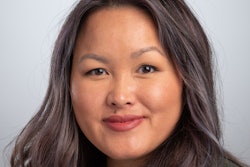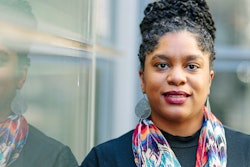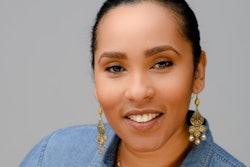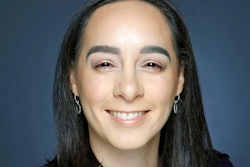Dr. Gerald Carter
Title: Assistant Professor, Evolution, Ecology, and Organismal Biology, The Ohio State University
Age: 39
Education: B.S., Cornell University; M.S., University of Western Ontario; and Ph.D., University of Maryland
Career mentors: Claudia Coen, Irby Lovette, John Hermanson, and Dan Riskin, all at Cornell University; Brock Fenton, Western University; Jerry Wilkinson, University of Maryland; Rachel Page, Smithsonian Tropical Research Institute; Damien Farine Jr., The Max Planck Institute for Animal Behavior; and Bryan Carstens and Meg Daly, both at The Ohio State University
Words of wisdom/advice for new faculty members: “Be kind to everyone. Prioritize what is important over what is ‘urgent.’ Seek out constructive criticism. Cold email people whose work you admire.”
Not many people have a strong memory of a specific moment from when they were two years old. But Dr. Gerald Carter does.
“My mom is from this Indigenous tribe in the Philippines, the Kalinga people. She used to hunt bats when she was a little girl — she’d climb up the trees and spear or hook them,” said Carter, recalling a trip he took with his mother to visit her family. “It’s one of my earliest memories, seeing a bat hanging somewhere and wanting to touch it.”
That memory sparked a fascination that would end up shaping the trajectory of his life. He is now an assistant professor in the department of evolution, ecology, and organismal biology at The Ohio State University (OSU) in Columbus.
Back home in upstate New York, a young Carter followed through on his obsession with bats. He read every book he could on the species. He learned their names and could identify them by sight. He envisioned a career working at a pet store or with the state wildlife department. He never saw himself pursuing a career in academia until his high school biology teacher encouraged him to apply for a scholarship to Cornell University.
“It completely changed the rest of my life,” said Carter.
Carter credits his success and career to the support of mentors, who helped him see past the imposter syndrome he felt as an undergrad. He says evolutionary biology is a field with less racial diversity than other science, technology, engineering, and math (STEM) disciplines.
At OSU, he researches cooperation in vampire bats, asking important questions that reveal answers about not only bat behavior, but human behavior.
“Reciprocity is the basis of human success, cooperation in the form of ‘I help you, you help me,’” said Carter. “Humans are sensitive to making sure relationships are fair — I’m helping in this way, you’re helping in that way, how is this mutually beneficial — there are subtle ways we navigate social relationships.”
These same behaviors can be observed in vampire bats, who create bonds, share food, and even adopt each other’s young. And, thanks to their extremely tiny size and proclivity to cluster in small spaces, Carter points out vampire bats are particularly easy to study in the lab.
Dr. Meg Daly, associate dean and professor of Earth sciences and evolution, ecology and organismal biology at OSU, said she knew immediately after Carter’s interview that her department needed his unique combination of skills and passion.
“He does amazing work,” said Daly. “He’s really creative. He knows a ton about bats, and from that, he makes interesting connections to the rest of the world. What does it mean to be a member of a community, and how do those social interactions move or disrupt being part of the community?”
Carter doesn’t just study community, Daly explains, he creates it. By partnering with the Ohio Department of Natural Resources: Division of Wildlife and other organizations at OSU, Carter held a community-wide Bat Day on Halloween for all ages.
“He had taxidermies and skeletons so people could see what the bats look like up close and talked about how you can encourage bats to live in your yard and the benefits they have for our ecosystems,” said Daly. “He is demystifying and encouraging curiosity. He does a great job of making science accessible, but not in a way that takes away curiosity and interest. He makes you excited to learn more.”
Carter acknowledged his mentors, who helped him navigate a career in academia and believe in his own capabilities.
“When it comes to closing the diversity gaps, people don’t always realize the gaps in how students think of themselves, what things they can do, what’s open to them. That has to be explained in person,” said Carter. “Those personal one-on-one relationships are the key to making that happen.”



















